If you’re a homeowner, eventually you’ll need to choose suitable blinds and shades for your rooms. However, the task isn’t as simple as you might imagine. Blinds and shades not only need to function as window coverings but also match your interior themes.
Fortunately, we’re here to help. In this post, we run through four major considerations you’ll need to make before deciding on a particular product. Read on to learn more.
Step1: Choose blinds/shades/curtains according to “space” needs
The type of blinds, shades and curtains you choose will vary according to your “space” needs. For instance, the window coverings you choose for your bedrooms will differ from those in your bathrooms.
▌Living Room
If you have French windows in your living room (ideal for flooding the space in natural light), your best window covering choices are:
- Venetian blinds
- Light-adjustable blinds and curtains
- Double roller blinds
- Light-filtering blinds and curtains
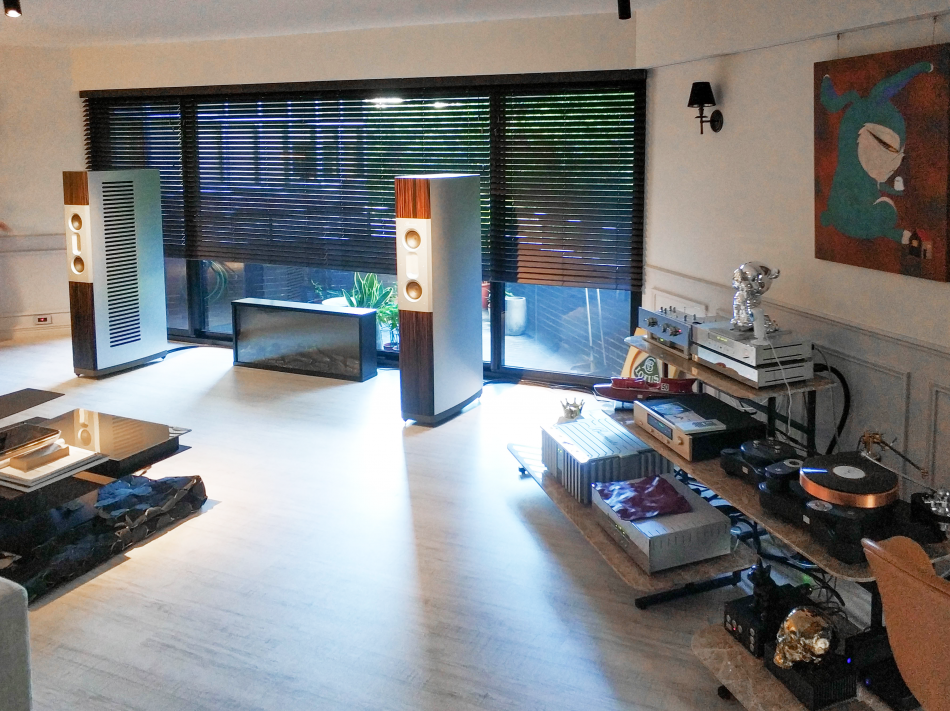
All of these options make the best possible use of your French windows. When you want to flood the room with daylight, you simply retract the blinds. And when you want to reduce glare, you roll them down and set the angle of slats (where applicable).
If you use your living room as an AV room or cinema, blackout blinds and curtains are the best solution. They block out sunlight almost entirely.
▌Bedroom
Bedroom light levels are essential for regulating your sleep-wake cycle. Because of this, your window covering choices matter.
If you live in an area with light pollution or want to sleep during the day, then blackout curtains and blinds as your best option. If privacy is your main concern, then you may also want to consider light-filtering blinds. For kids’ bedrooms, safety is a priority, so motorized and cordless blinds are top choices.
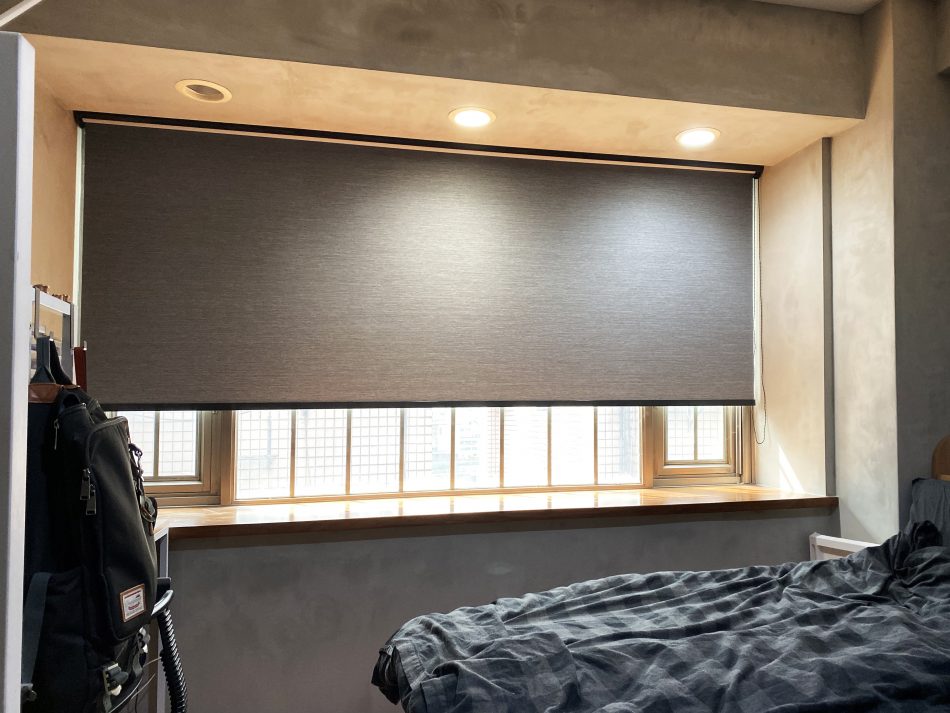
▌Study Room
Window covering in study rooms should offer light-level adjustment, be clean and simple and, in some cases, offer fire-retardants. Light-level adjustability is critical for comfortable reading and reducing glare, while simplicity aids concentration.
Here, the best options are light-adjustable blinds, double roller blinds, honeycomb shades and venetian blinds. Aluminum venetian blinds are simple and naturally flame-retardant without the use of chemicals.
Those with large study rooms or offices may also want to consider remote-controlled motorized blinds. These allow you to retract your blinds with the touch of a button.
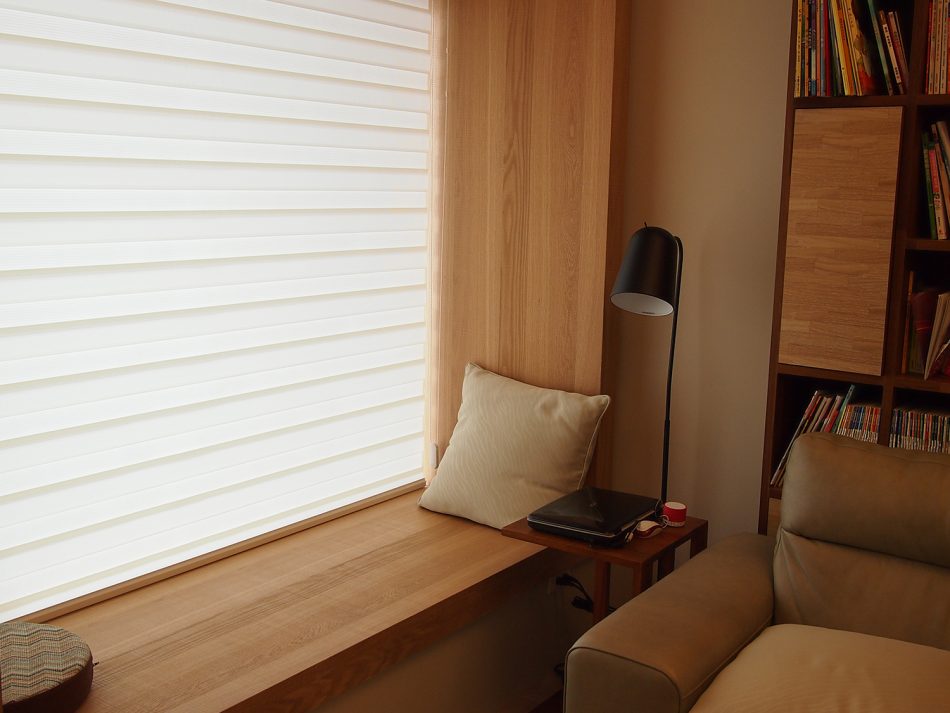
▌Kitchen
Kitchen window coverings need to be oil- and fume-proof. Oil and moisture particles will often settle on their surfaces, leading to grime buildup. They must also be water-repellent, easy to clean, and flame retardant. Recommended blinds include roller blinds, temp shade, and water-proof venetian blinds: Pimu venetian blinds fauxwood, Pimu venetian blinds plain fauxwood, aluminum venetian blinds.
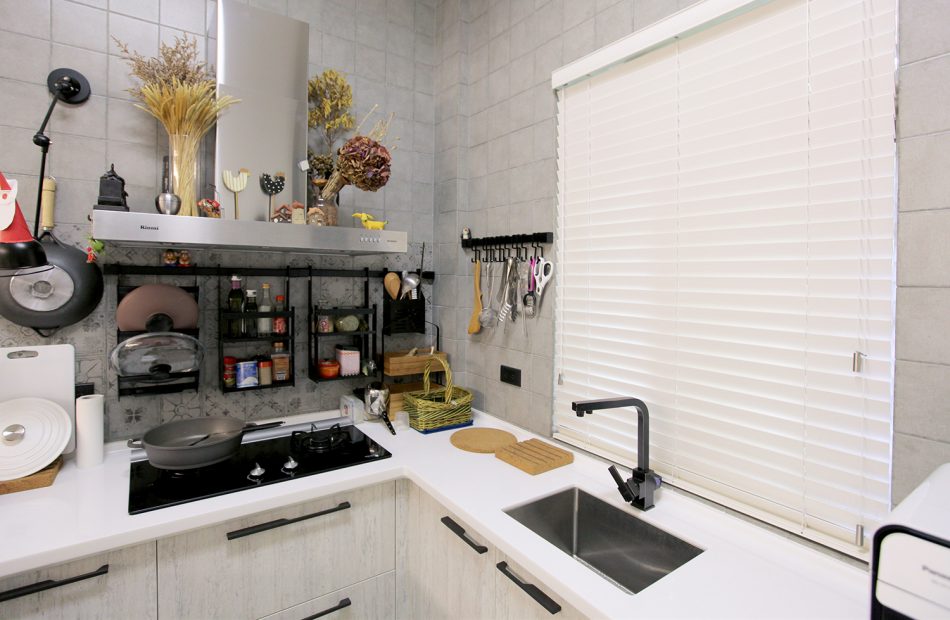
▌Bathroom
Bathroom window coverings must offer privacy, be capable of enduring high humidity and temperature, and be easy to clean. Good choices include waterproof blinds, roller blinds and venetian blinds.
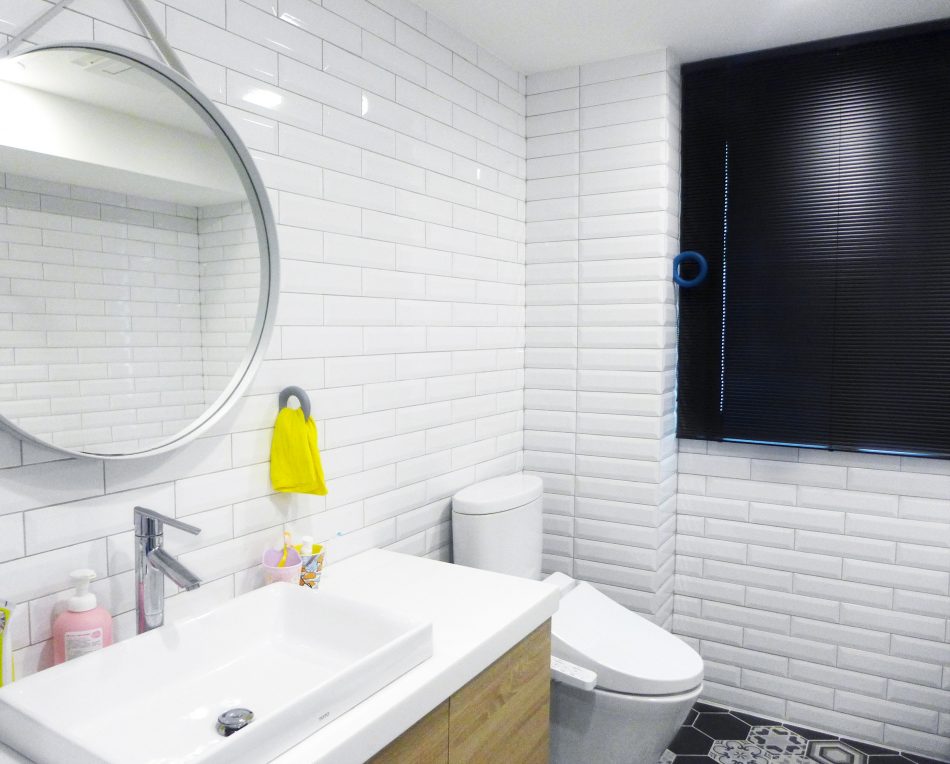
Step2: Select blinds/shades/curtains according to “functional” needs
The next step is to select your window coverings according to your functional requirements. We have mentioned some options briefly already. In this section, we explore them in greater detail.
►Electric
Electric blinds and shades use a small motor to extend and contract. Many models come with a remote control; furthermore, you can even operate with a smart app equipped mobile phone, negating the need to push physical buttons on the window coverings themselves.
Experts consider electric blinds to be safer than corded versions because they do not require tassels, a potential strangulation risk. They also tend to last longer than manual options because manufacturers precisely calibrate the force of the motor to the blind’s material and technical requirements.
🔎 More about motorized blinds price, pros & cons
►Waterproof
Waterproof blinds and shades are made of materials that water cannot damage, making them suitable for high-humidity rooms, such as the kitchen and bathroom. Generally, they are easy to clean, won’t collect mold and will stay in shape, even if temperatures and water moisture content remain elevated for long periods. Such blinds and shades are often made of aluminum or faux composite wood.
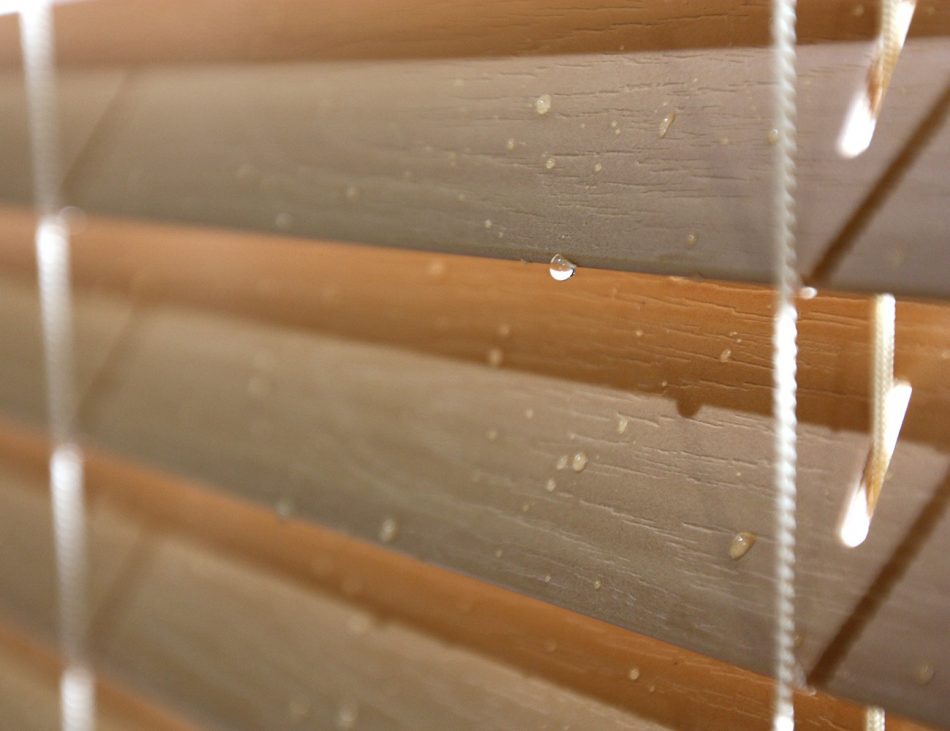
►Blackout
Blackout blinds and shades block out the vast majority of incoming light. They are ideal for boosting privacy and for people who want to sleep in the daytime or reduce light pollution. Manufacturers make them from solid materials or tightly-woven fabrics.
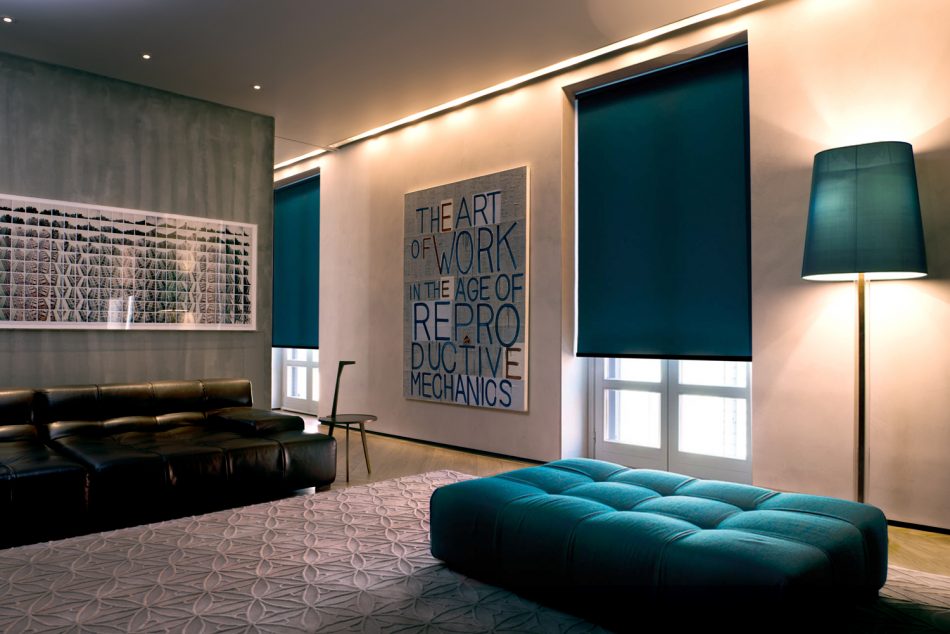
►Thermal insulation
Heat insulation blinds are made of thick material designed to trap heat in the home. They can be part of property-wide schemes to reduce energy usage and overall CO2 emissions. And because they are thick, they also tend to be good at blocking out light.
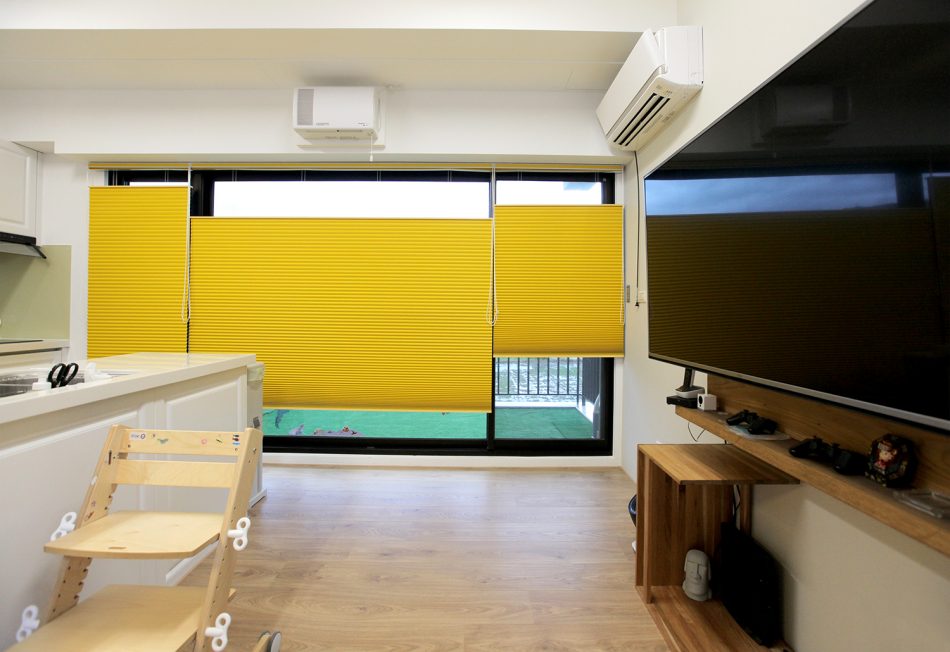
►Cordless
Cordless blinds and shades use non-cord-based systems to allow homeowners to manually open and close them. Designs feature poles that you twist and turn to extend and retract the window covering.
Advantages of going cordless include a reduced risk of strangulation and avoidance of annoying knots.
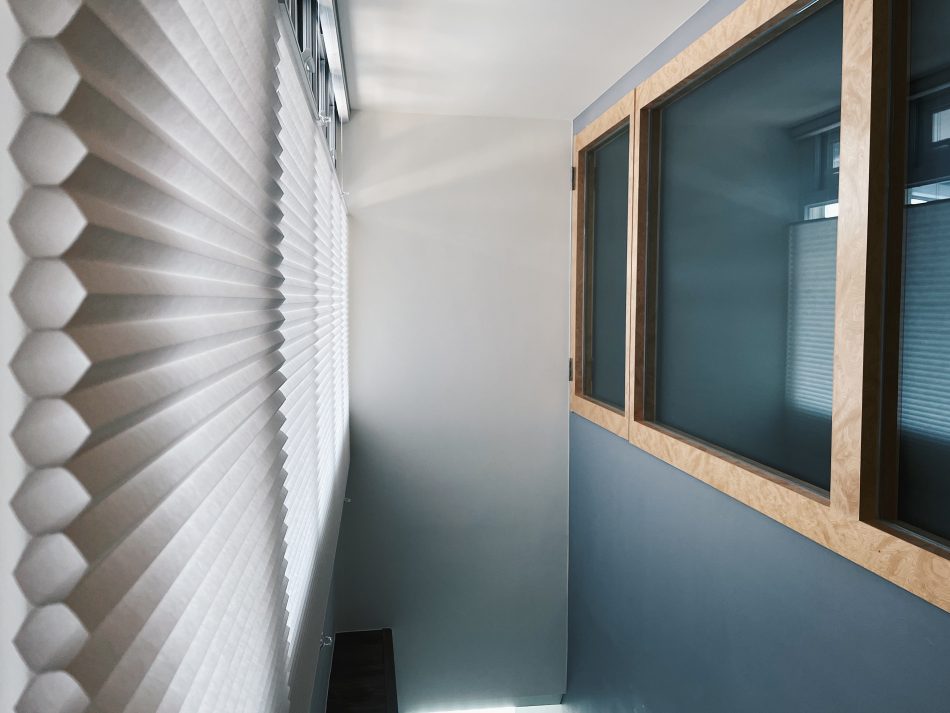
Step3: Choose blinds/shades/curtains according to “color” needs
The next step is to choose blinds and shades that complement your interiors. At MSBT, we make this process easier for you by offering a wide range of colors and patterns to choose from. Our color selection method is as follows:
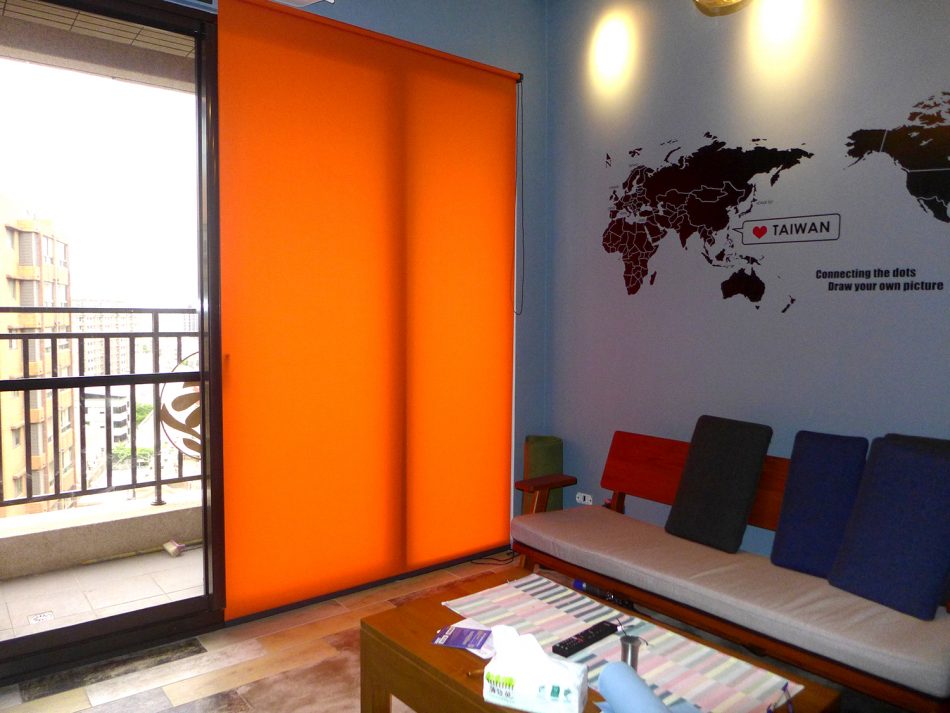
▌Choose according to your favorite color
Go to our color page and browse all the blind, shade and curtain colors available there. Each color comes with a unique description and an image, showing you how it will appear in your home. The text description tells you the mood a particular color will generate.
▌Pick the decoration color system of the unified space
The next step is to check that the color matches the rest of the space. If you are not sure whether it will work, use a color wheel.
A color wheel is a donut-shaped circle that shows how each of the colors of the rainbow transition from one to the next. It is an extremely helpful device that you can use to work out whether a particular window covering color will match your rooms or not.
In general, there are three methods for choosing colors using the color wheel:
- Monochromatic: This is where you choose different shades of the same color tone. So, for instance, you might choose blinds that are slightly lighter or darker than your interior’s monochromatic color scheme
- Analogous colors: This is where you choose two complementary colors that sit next to each other on the color wheel. For instance, you might choose red and red-orange, or blue and blue-green.
- Complementary colors: This is where you choose colors from opposing sides of the color wheel. For instance, you might pair red and green or purple and yellow.
- Triad colors: Lastly, you might choose three colors of equal spacing on the color wheel, sometimes called “triad colors.”
▌Choose suitable shading
For darker colors, use darker shades, and for brighter colors, use brighter shades. For instance, if your room is quite muted or neutral, don’t choose bright red or purple shades – they will look out of place. Likewise, if your room is already vibrant and colorful, avoid pastel shades or blinds that look “washed out.”
Step4: Choose blinds/shades/curtains according to “style” needs
Lastly, you’ll want to choose blinds, shades and curtains that meet the style requirements of your interiors. Or, put another way, you want them to speak the same aesthetic language as the rest of the room.
►Loft/Industrial style
Loft and industrial-style window coverings add masculine characteristics alongside a slightly retro feel to your spaces. Typically, blinds are dark in color and highly functional.
►Asian Style
There are several Asian styles that may complement your room.
1. Japandi style
Japandi style is the intersection of modern Japanese and Scandinavian design languages. The goal is to combine an element of eastern Zen with Western minimalism and simplicity. Blinds in this category complement warm rooms with muted color palettes, ample natural light and plants.
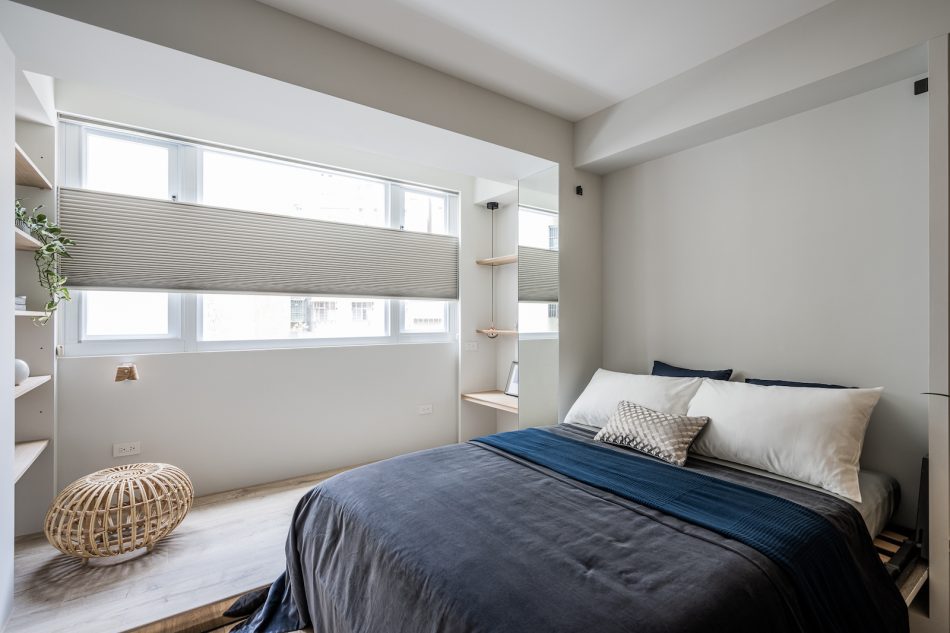
2. Woody Zen style
The goal of woody Zen style is to inspire peace and tranquility, while also reflecting the beauty of nature. Window coverings use simple, natural, warming tones, creating a calm and elegant atmosphere. This style is ideal for interiors that already feature plenty of wood and exposed stone.
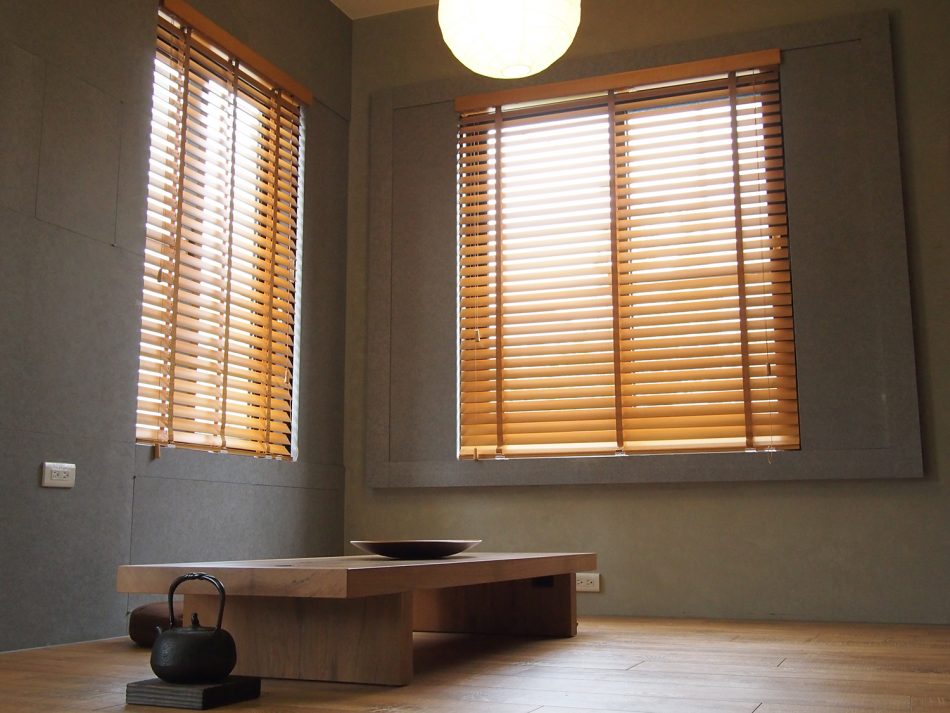
3. Bali Villa design
Bali villa design is heavily influenced by the Indonesian island’s rich Hindu past, plus ancient Javanese elements. Bali villa blinds are suitable for interiors that ground interiors in nature and incorporate the outdoors. Typically, they pair well with interiors featuring greenery, rich flora and tropical foliage.
►Scandinavian design
Scandinavian window coverings are celebrations of simplicity and minimalism. They emphasize natural daylight and seek to brighten entire rooms. Common colors include pearl white, light blue, grey and light brown. They pair particularly well with nature-friendly Lohas styles, and are ideal for rural and urban residences alike.
►Rustic/Cottage style
Cottage and rustic-style window coverings seek to complement homely, cozy and simple interiors. Most often, cottage window coverings are plain white to contrast with natural materials in the room, such as wood, cotton and linen. White allows more light to penetrate the room, particularly during cooler months, generating a brighter and warmer atmosphere.
【MSBT Maison Boutique】Your best assistant to customize your blinds!
We offer services of overseas delivery across the globe at consumers’ expenses, please contact our english customer service for more details.
You also could enjoy our doorstep service at TAIWAN. Service area include: Taipei/New Taipei city center/Taoyuan/Hsinchu/Miaoli/Taichung city center/Tainan/Kaohsiung/Pintung city center. There is no area limitation on online shopping and home delivery.

[…] other types of decorations. If you’re wanting to change your window covers, be sure you know how to choose blinds and shades. Any of these decor changes can make a drastic change to your […]